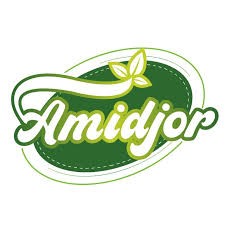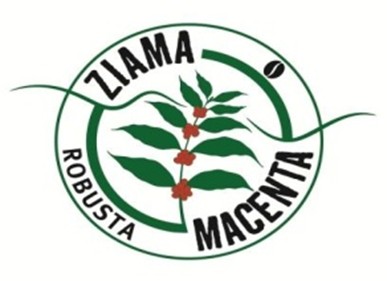Amidjor is a company specialized in agri-food production, processing, and training.

Bruno is a Development Finance Expert and Chartered Accountant by training with extensive expertise in Environmental Finance, Environmental, Social, and Corporate governance (ESG), Project Finance, Financial Management and Accounting with over 18 years’ experience. He is currently the Managing Director of Panuka Farm and does a lot of consultancy in the environmental finance space.
Academically, Bruno has a Master of Philosophy in Development Finance (Nelson Mandela University, South Africa) and an MBA in Financial Services (University of East London, United Kingdom). He is also a Certified Expert in Climate and Renewable Energy Finance (Frankfurt School of Finance and Management, Germany), Chartered Accountant (ACCA) and an Infrastructure Project Finance Expert (Middlesex University, United Kingdom).
In 2023, Bruno published his first book named Farming as a Business to share his experiences as an innovative farmer and business consultant, and to guide farmers running a profitable farming enterprise.

Social platforms:
https://panuka-farm.business.site/
Facebook : https://www.facebook.com/Panukafarms/
YouTube : https://www.youtube.com/channel/UCyrwfPEN6LBuTF3kWefnBXg
About Panuka Farm
Company status: Limited
Year of registration: 2017
Number of employees: 24
Bruno Mweemba, Founder and Managing Director
Bruno is a Development Finance Expert and Chartered Accountant by training with extensive expertise in Environmental Finance, Environmental, Social, and Corporate governance (ESG), Project Finance, Financial Management and Accounting with over 18 years’ experience. He is currently the Managing Director of Panuka Farm and does a lot of consultancy in the environmental finance space.
Academically, Bruno has a Master of Philosophy in Development Finance (Nelson Mandela University, South Africa) and an MBA in Financial Services (University of East London, United Kingdom). He is also a Certified Expert in Climate and Renewable Energy Finance (Frankfurt School of Finance and Management, Germany), Chartered Accountant (ACCA) and an Infrastructure Project Finance Expert (Middlesex University, United Kingdom).
In 2023, Bruno published his first book named Farming as a Business to share his experiences as an innovative farmer and business consultant, and to guide farmers running a profitable farming enterprise.
Business model
Mission: to be a centre of excellence for smallholder farmers in climate resilience in horticulture farming.
It is estimated that chain stores in Zambia only procured 10% of their high-value vegetable produce from local smallholder farmers, with 90% being imported. Smallholder farmers to do not have the capacity to supply the formal market because they lack production infrastructure, knowledge and entrepreneurial skills. The issue of consistent availability of fresh produce is compounded by climate change that disrupts the seasonal weather patterns.
At the same time, deforestation is a growing scourge in Zambia as farmers are looking to increase production by expanding their fields. Deforestation causes Zambia to lose about 250,000 – 300,000 hectares of tree per year.
Panuka Farm has been created to show that large quantities of produce can be grown on smaller pieces of land based on a conservation and climate-smart agricultural approach. Panuka Farm has emphasized on climate proofing their production as climate change needs to be considered a vital factor of production. They have installed solar panels to source all their energy needs from solar energy, along with drip irrigation and water harvesting systems. In the quest for climate adaptation, they also have various production environments ranging from greenhouses to shadenets which allows the farm to remain in production all year round.
Since the launch of their operations, Panuka Farm has been recognized as a producer of high-quality vegetables. The farm’s value proposition is quality, quantity and consistency driven by a climate proofed production system. They supply chain stores with products about four times a week throughout the entire year.
Strong relationship with smallholders, cooperatives…
Panuka Farm has embraced the ESG ethos in its operations. Panuka Farm has developed deep ties to the local community. 95% of its workforce comes from surrounding villages. The company also runs a six months-graduate traineeship to train graduates from agricultural colleges and universities in farm management to inspire the next generation of forward-looking agricultural leaders. As at 2023, the farm was running its third cohort.
The company works with 10 farmers with an average age is 30 years and of whom 60% are women.
Products and markets
Panuka Farm produces a mix of fresh vegetables. Its core products are sweet pepper (red, yellow and green), English cucumber and iceberg lettuce. Sweet melon are the newest product currently undergoing trial.
Panuka Farm operates on a B2B model by mainly supplying chain stores. While they initially engaged with bulk production, they recently began to produce specific produces and quantities based on their customers’ requests. This helps the company minimise production losses as they only grow what they know will be sold.
The company has yet to get international certifications.
Innovations: Milestones and expansion plans
Panuka Farm has been designed as an energy self-sufficient farm that adapts to the environment and climate change. The farm is 100% solar powered, thus not dependent on the fluctuations of Zambia’s energy supply. Panuka Farm has also implemented other technologies such as drip irrigation that harnesses the power of gravity, and harvesting rainwater. The farm recently acquired a 10,800 sqm mega shade net to modestly influence the microclimate under the cover material. The shade net filters the sun rays and acts as a windbreaker, thus protecting the crops to prove their productivity, quality and homogeneity. The shade nets also protect the farm staff from direct sunlight and high temperatures.
Panuka Farm’s founder, Bruno, is very committed to sharing knowledge and empowering (smallholder) farmers by developing their farming and entrepreneurial skills. Considering that farming knowledge is universal, he has created a YouTube video-platform to share content that focuses on emerging topics such as use of renewable energy, precision farming, climate proofing of horticulture farming enterprises etc. 200 videos have been published since the creation of the YouTube channel in 2020, each video being watched hundreds, if not thousands, of times.
Bruno also published Farming as a Business: A Practical Handbook for First-Time Farmers in Developing Countries to help farmers operate a sustainable and profitable farming business. This book addresses some of the traditional factors of production such as land, labour, capital and entrepreneurship and emerging issues such as climate change.
Panuka Farm is currently working on increasing their production capacity and looking for new export opportunities, starting with English cucumber.
For upgrading climate-proof production, Panuka Farm is looking for “low-hanging technologies” that can be easily acquired and implemented in the quest to increase the resilience of the farm towards climate change and be in production all year round.
The farm is also trying to position itself as a center of excellence for new graduates, researchers and farmers. The farm is thus looking for partnerships to create the farm as a center of excellence for knowledge sharing for smallholder farmers and graduates.
Success factors and lessons learned
Panuka Farm is a social business that pioneers in green energy and innovative agricultural technology in Zambia. In times of climate change, ensuring consistent production quality and quantity requires to climate proof production processes. This can be achieved with traditional and new farming techniques, as well as technology to enhance the resilience of the cultures and boost crops. Panuka Farm’s focus on climate resilient technology that is malleable to current climate conditions is its greatest strength, allowing for year-round consistency to its customers.
In addition to taking into account climate change, the success of Panuka Farm lies on four areas of attention which are: land, labour, capital and entrepreneurship. This holistic approach enables developing farming as a successful enterprise.
Financial support from external actors has been vital to Panuka Farm’s work. Panuka Farm has been the recipient of $37,000 from the World Bank through the Zambia Agribusiness and Trade Project (ZATP). Panuka Farm has used these funds to invest in creating greenhouse shelters, solar energy, and cold rooms. The farm has also acquired commercial funds (loans) to increase its production infrastructure as well as smoothen some of the logistical issues especially transport.
Of significance is that Bruno is a dedicated in engaging with agrifood stakeholders, ranging from farmers and entrepreneurs to policy makers. Panuka Farm hosts many visits to share their good practices and innovations with others, including high level partners. In June 2022 and in April 2023, Panuka Farm respectively hosted the World Bank Managing Director and the US Vice President, Kamala Devi Harris.
Additional Resources
Join our Forum to discuss and explore how to encourage innovations across agricultural value chains to transform food systems in African, Caribbean and Pacific countries and beyond, promote sustainable agriculture & leverage investments. Share insights, ask questions, and collaborate on innovative solutions for a greener future.
Recent Business Profiles

Amidjor is a company specialized in agri-food production, processing, and training.

ADECAM is a community-driven organisation in Guinea dedicated to protecting, promoting, and developing the Ziama-Macenta Geographical Indication coffee, while supporting smallholder producers...

Tac Maz Sustainable Ventures is a climate-smart social enterprise in Malawi supporting smallholder farmers through sustainable poultry and horticulture production.

Bono Salus is a Zimbabwean woman-led agribusiness specializing in urban hydroponic farming of microgreens.

The Nut Place is a Nigerian food innovation company that processes locally grown edible nuts into gluten-free, nutrient-dense products to improve nutrition, reduce post-harvest losses, and promote...